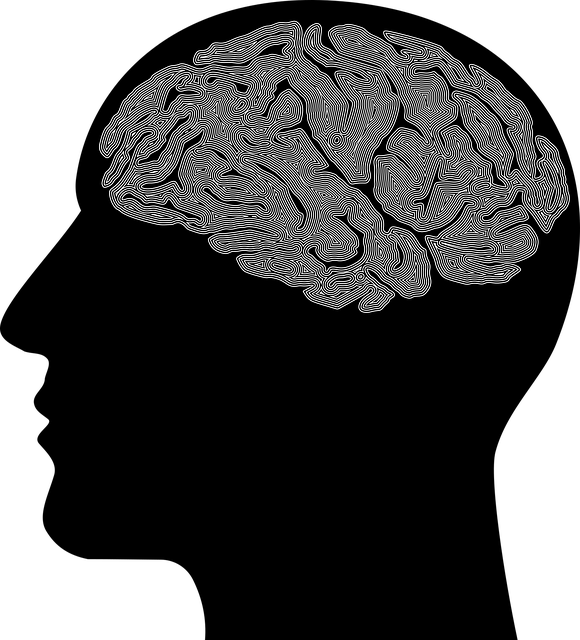Understanding Mental Health Diagnoses is key to effective treatment planning, utilizing the DSM as a guide. This promotes self-awareness and proactive engagement in care. Westminster Bipolar Disorder Therapy offers a holistic approach, integrating various therapeutic modalities and coaching programs to manage symptoms and foster resilience. Navigating diverse treatment options, including CBT and DBT, combined with support systems and self-care practices, is crucial for bipolar disorder management. The therapy focuses on building coping mechanisms, enhancing self-care, and positive thinking patterns through personalized coaching and trauma support.
“Uncertainty often shrouds mental illness diagnoses, but understanding your condition is the first step towards healing. In this comprehensive guide, we demystify mental health diagnoses, offering insights into the Westminster Bipolar Disorder Therapy Approach—a proven method for managing bipolar disorder.
Explore effective treatment options and uncover valuable support systems that can significantly improve your journey. Furthermore, discover resilience-building strategies to empower yourself in effectively managing your mental health.”
- Understanding Mental Health Diagnoses: A Comprehensive Guide
- The Westminster Bipolar Disorder Therapy Approach
- Navigating Treatment Options and Support Systems
- Building Resilience: Strategies for Effective Management
Understanding Mental Health Diagnoses: A Comprehensive Guide

Understanding Mental Health Diagnoses: A Comprehensive Guide
In today’s world, mental health diagnoses are more commonly recognized and discussed than ever before. However, navigating the complex landscape of diagnosis can still be a challenging and often intimidating process for many individuals seeking Westminster Bipolar Disorder Therapy. The first step involves recognizing that mental health conditions, such as bipolar disorder, depression, or anxiety disorders, are real medical issues with specific symptoms and treatments. Professionals use standardized tools and criteria from the Diagnostic and Statistical Manual of Mental Disorders (DSM) to accurately assess and diagnose these conditions.
A thorough diagnosis is crucial for effective treatment planning. It not only involves identifying the presence of a mental health disorder but also assessing its severity, duration, and potential impact on daily functioning. This process often includes detailed discussions about symptoms, personal history, family medical history, and any relevant environmental factors. By understanding the specific diagnosis, individuals can gain valuable insights into their emotional experiences, build confidence boosting strategies, and develop a better sense of self-awareness. Furthermore, knowledge of one’s mental health condition empowers people to actively participate in their treatment journey, fostering emotional intelligence and resilience. This proactive approach is supported by advocacy groups and policies focused on mental health policy analysis and advocacy, which aim to ensure accessible and effective mental health care for all.
The Westminster Bipolar Disorder Therapy Approach

The Westminster Bipolar Disorder Therapy Approach is a comprehensive framework designed to support individuals struggling with bipolar disorder. This approach emphasizes a personalized, holistic strategy that integrates various therapeutic modalities. Mental wellness coaching programs are a cornerstone of this method, empowering patients to develop coping mechanisms and improve self-management skills. By combining these techniques with compassion cultivation practices, the therapy fosters understanding and resilience in the face of intense emotional fluctuations.
Additionally, burnout prevention strategies for healthcare providers are integrated into the Westminster approach, recognizing the importance of supporting those who support others. This inclusive model aims to enhance overall mental wellness while ensuring that both patients and therapists receive the necessary tools to navigate bipolar disorder effectively. The result is a nurturing environment that promotes sustainable recovery and enhanced quality of life.
Navigating Treatment Options and Support Systems

Navigating treatment options for mental illness can be a complex and daunting task, especially when managing conditions like bipolar disorder. In Westminster, individuals seeking therapy have access to a diverse range of professionals who specialize in various therapeutic approaches. From cognitive-behavioral therapy (CBT) to dialectical behavior therapy (DBT), each method offers unique benefits tailored to specific needs. Understanding these options and finding the right fit is crucial for effective treatment.
Support systems play an integral role in the emotional healing process. Encouraging self-care practices, such as regular exercise, adequate sleep, and mindfulness techniques, can significantly contribute to managing symptoms. Moreover, risk assessment tools, when utilized by mental health professionals, ensure that potential risks are identified and addressed promptly. Building a network of supportive friends, family, or support groups can provide additional resources for coping strategies and a sense of belonging, fostering a more holistic approach to recovery.
Building Resilience: Strategies for Effective Management

Building resilience is a cornerstone for effectively managing mental illness, including conditions like bipolar disorder. Westminster Bipolar Disorder Therapy often integrates strategies that empower individuals to navigate life’s challenges with greater equanimity and adaptability. These approaches focus on cultivating coping mechanisms, enhancing self-care practices, and fostering positive thinking patterns. By engaging in regular therapy sessions, individuals learn to recognize triggers, manage mood swings, and develop healthy habits that contribute to mental wellness.
Mental Wellness Coaching Programs and Trauma Support Services play a significant role in building resilience. Emotional Well-being Promotion Techniques used within these programs teach individuals skills to navigate stress, anxiety, and depression. Through personalized coaching, individuals gain insights into their emotional patterns, learn effective communication strategies, and develop problem-solving abilities. These tools are invaluable for managing symptoms and promoting overall well-being, enabling individuals to lead fulfilling lives despite the challenges posed by bipolar disorder or other mental health conditions.
Mental illness diagnosis and treatment can be a complex journey, but with the right navigation assistance, individuals can find their path to recovery. This article has provided a comprehensive guide to understanding mental health diagnoses, including an in-depth look at the Westminster Bipolar Disorder Therapy Approach. By navigating treatment options and building resilience through effective management strategies, folks can revolutionize their mental health care. Remember that with support systems and tailored therapy like Westminster Bipolar Disorder Therapy, recovery is achievable and indelible.














